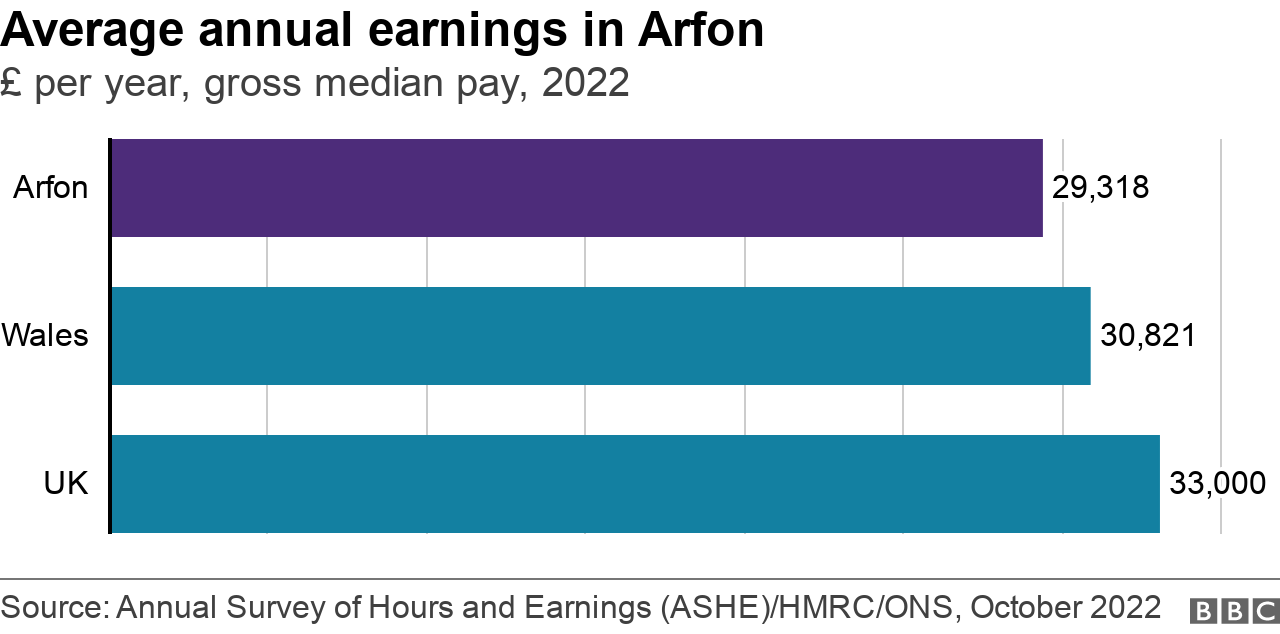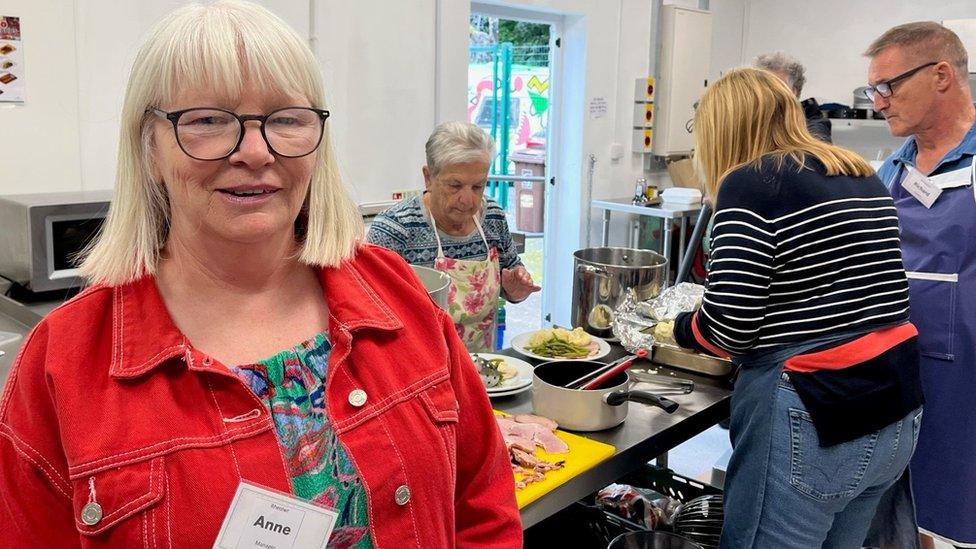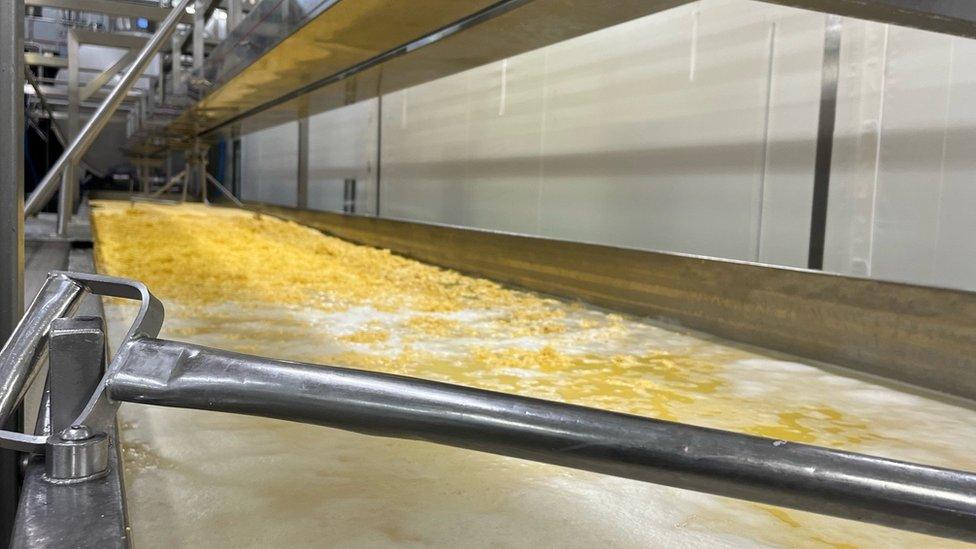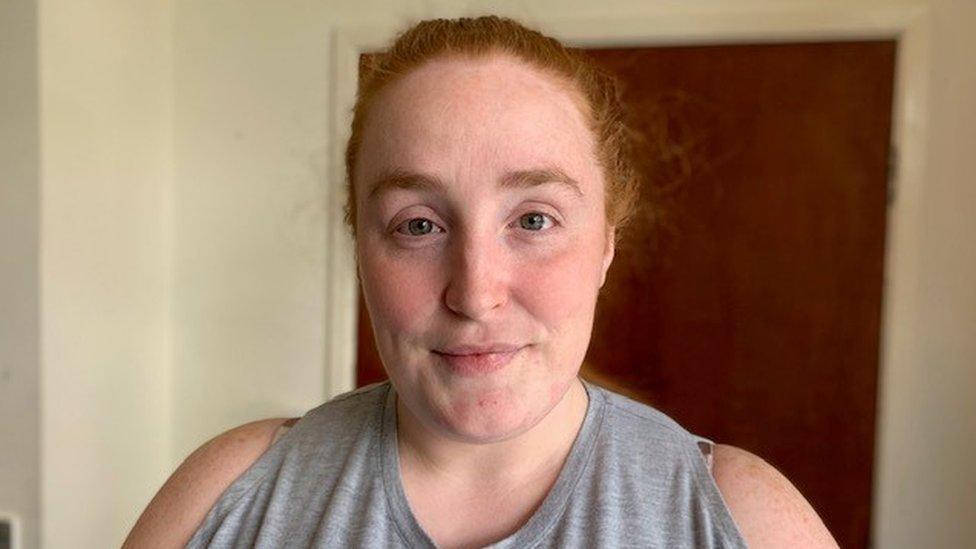Arfon: Workers earn £3,500 less than UK average
- Published

The in-depth study has looked at income in the area, which includes Bangor and Caernarfon
Workers who live in one north Wales constituency earn £3,500 less per year than the UK average, figures show.
Low pay and insecure work in Arfon are some of the main drivers, making the cost of living impact more acute, a think-tank report has found.
The Bevan Foundation research is the first in-depth study into the issue in the area which includes Bangor and Caernarfon.
The UK government said it is providing record support to each household.
The Welsh government said it had increased core funding to local authorities despite "extraordinary financial pressures".

The report found of the 31,000 workers in Arfon, more than 60% work in the following main sectors: health and social care, education, wholesale and retail trade and public administration, and defence.
This means the area is twice as dependent on the public sector than the UK average. The three main employers are the local council, Cyngor Gwynedd, Bangor University and the hospital Ysbyty Gwynedd.
But the Bevan Foundation said it appears that the higher paid jobs in places like Bangor and Caernarfon tend to be for people who commute in and out.
Figures show average annual earnings for full-time workers living in Arfon are below both the Welsh and UK averages.
But workers in Arfon are also much more likely to be in part-time work than the Welsh average.

Porthi Dre community enterprise is helping people on low incomes
The findings come as no surprise to Anne Evans, who works at Porthi Dre, a community enterprise that offers support and food to low income families in Caernarfon.
"It's hard, you only have to look at the number of people who have come here today for a free hot meal," she said.
"We do it twice a week and it really helps people during the cost of living crisis."
Report author Dr Steffan Evans maintained that "poverty is not inevitable".
"Though wages based in Arfon are competitive, wages for people who live in Arfon are low. That contradiction, we don't see it often," said Dr Evans.
"And the cost of living crisis premium in Arfon really came through too."

South Caernarfon Creameries has just secured a deal with the United States
The manufacturing sector involves only 4% of the workforce in Arfon compared to 8% across Wales, and one factory director in Gwynedd said he wants to see more help for small to medium-sized businesses to boost the private sector.
South Caernarfon Creameries has just secured a trade deal with the United States but wants more support.
"There are lots of successful private sector companies in this area and it's important they get the correct support to develop," said managing director Alan Wyn Jones.
The report has made a series of recommendations for government, including the need to support more local enterprises.
It finds "significant strengths" in social enterprises, such as Galeri in Caernarfon. Since 1992 it has purchased and refurbished 20 buildings with more than 50 tenants operating out of them.
Galeri has also developed an arts centre and supports deprived communities and has contributed almost £2.5m to the economy of Gwynedd and Anglesey.

Llanberis is a familiar starting point for ascents of Snowdon
The Bevan Foundation has put forward recommendations to Cyngor Gwynedd and government for tackling issues such as housing and transport, which have an impact on the cost of living:
Expand the policy of buying back properties within Arfon to improve access to affordable housing for local people
Expand the Dwyfor housing affordability and second homes pilot to cover Arfon, with figures showing 25% of all second homes in Gwynedd lie in the constituency
Support social enterprises and independent local providers to expand the provision of community and alternative transport, with public transport an issue in areas such as the Nantlle valley
Explore more active travel schemes such as e-bikes
The think tank estimates 2,500 children in Arfon are living in poverty and suggests an increase in the Universal Credit standard allowance, reform of the local housing allowance and scrapping the two-child benefit cap.
The UK government said it was providing record financial support worth £3,300 per household.
"We have raised benefits by 10.1%, made an unprecedented increase to the national living wage and the UK government is also giving an extra £50m to help people in Wales with essential costs," said a spokesperson.
The Welsh government said it was "doing everything we can to support people through this cost of living crisis by providing targeted help to those who need it most."
It said during 2022-23 and 2023-24 support was worth more than £3.3bn."We are facing extraordinary financial pressures, including record levels of inflation, which mean our budget is worth up to £900m less in real terms," said a spokesperson.
"However, we have increased core funding for local authorities by 7.9% in 2023-24 to more than £5.5bn. This can be used flexibly to provide services to respond to local needs and priorities."

CELEBRATING WELSH MUSIC: From the swinging sixties to Cool Cymru
LADY BIGFOOT: A lonely Bigfoot has fallen in love...

- Published19 February 2023

- Published26 April 2023

- Published14 July 2023
